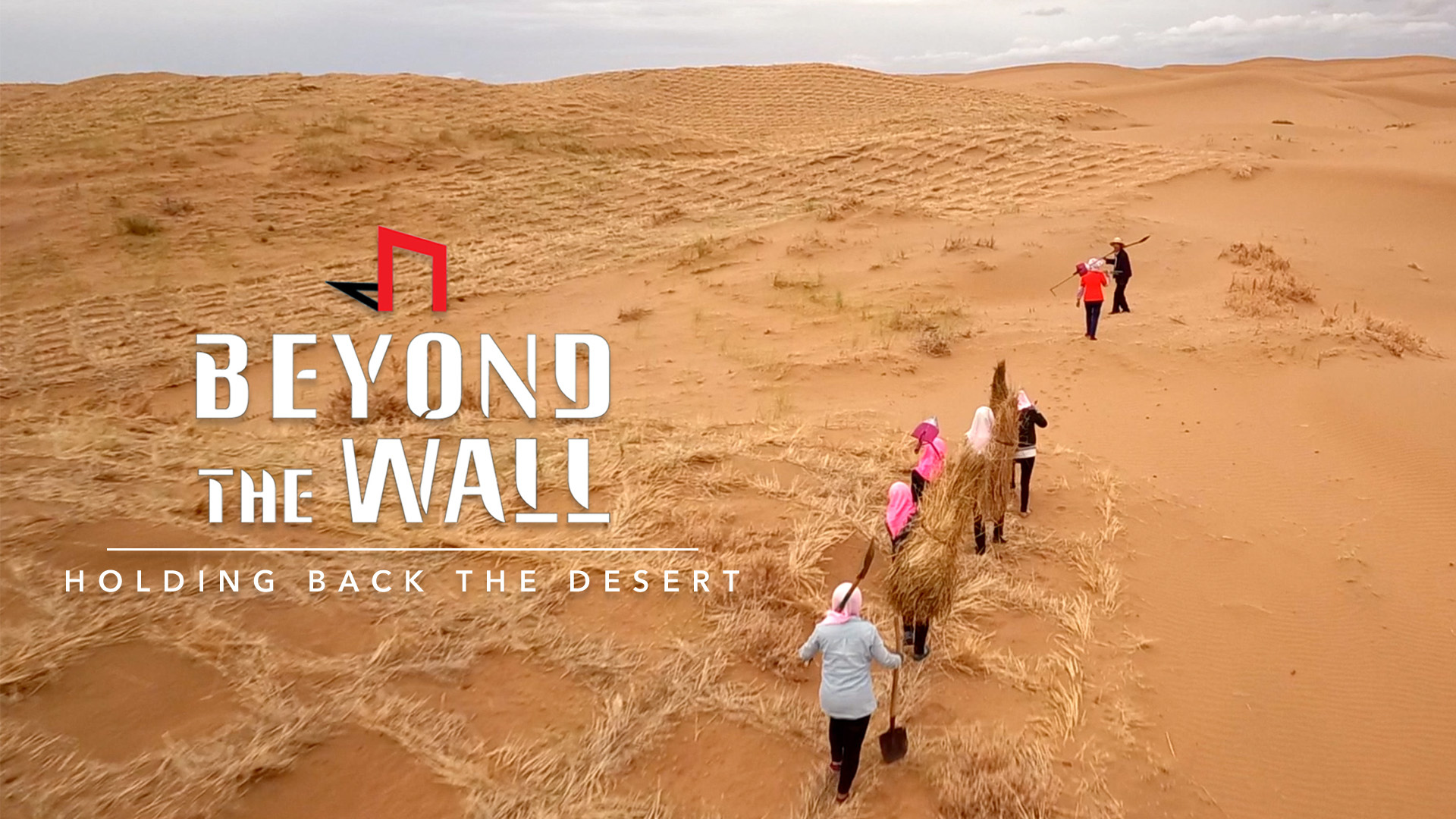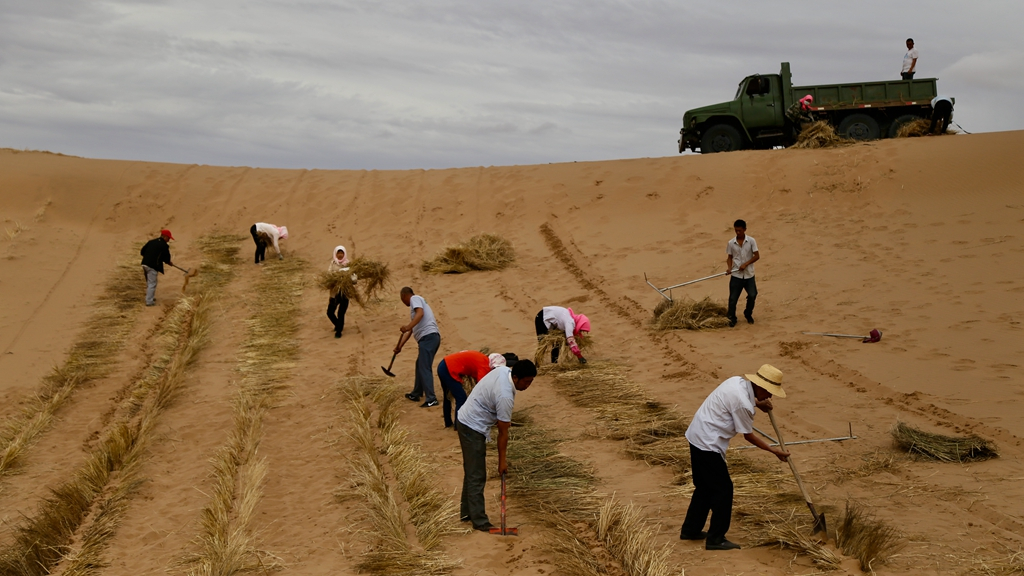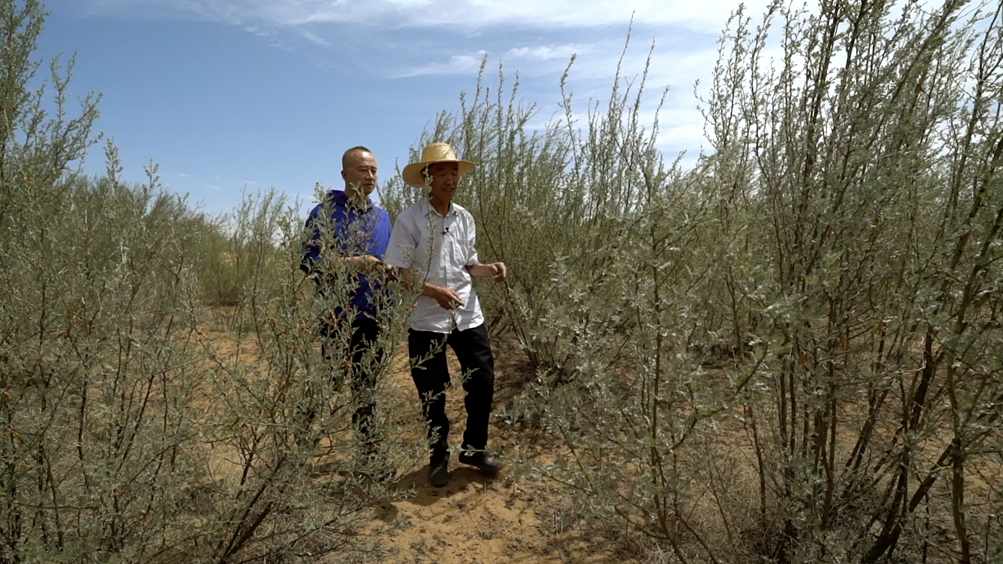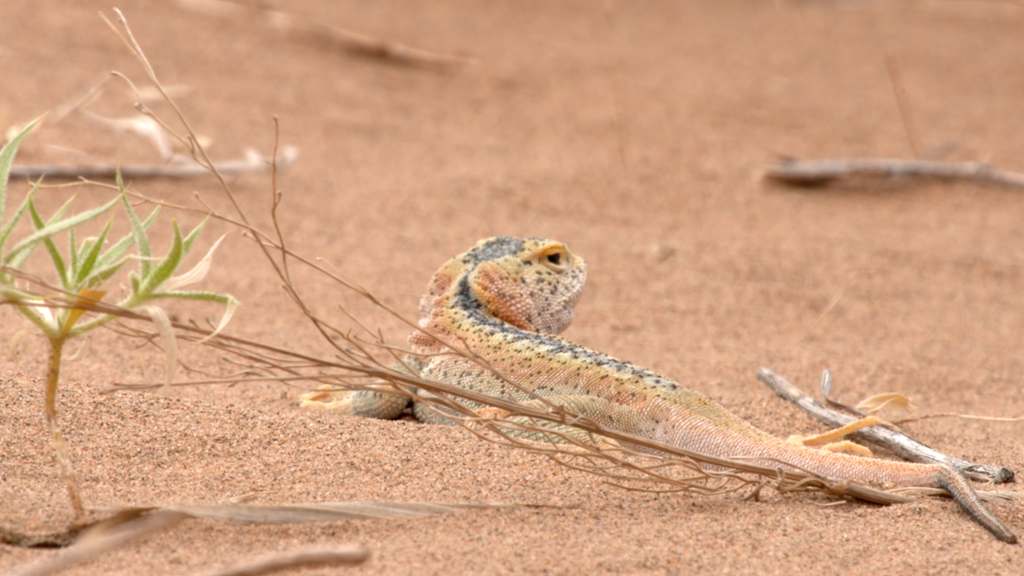
China
12:12, 15-Sep-2018
Reporter's Diary: True grit
Updated
11:58, 18-Sep-2018
By Han Bin, Huang Xiaodong
05:03

Turning the land green
To see how China deals with desertification, a CGTN crew went to Babusha, a village in the south of the Taklamakan, China's fourth largest desert. Thirty years ago, the desert was all they could see. Now a green wall is helping hold back the sand.
We met with 66-year-old Guo Wanggang. He is a guardian of Babusha's forest farm, a second-generation desert fighter, following in his father's footsteps. He wants to build the world's longest artificial forest on sand.
"The sand is drifting south 10 meters a year toward the village. If we don't fight against the desert, we have to retreat from our homeland, and become ecological refugees," said Guo, head of Babusha Forest Farm.

A bird's-eye view of Babusha, a large sand dune on the southern edge of the Tengger desert in northwest China. The government is promoting measures to deal with desertification. /CGTN Photo
A bird's-eye view of Babusha, a large sand dune on the southern edge of the Tengger desert in northwest China. The government is promoting measures to deal with desertification. /CGTN Photo
Desertification is one of the most severe challenges facing China. It is killing off natural resources and driving people from their homes. China has set the goal of reclaiming 100,000 square kilometers of land by 2020. The government has encouraged farmers to plant more trees. This strategy is workable, at least, here in Babusha.

Farmers in Babusha village use checkerboards to anchor the sand. The concept is an artificial boost with natural restoration. /CGTN Photo by Lan Hao
Farmers in Babusha village use checkerboards to anchor the sand. The concept is an artificial boost with natural restoration. /CGTN Photo by Lan Hao
From man vs. nature to man and nature
Babusha's story is a microcosm of China's lengthy war against desertification. Guo said combating the desert does not mean eradicating it. They are looking for ways to coexist with this harsh side of nature. It's a new concept in land management.
"Deserts aren't scary for humans. They have always been a natural landscape co-existing with humans," said Guo.

CGTN correspondent Han Bin follows Guo Wangang, head of Babusha Forest Farm, while inspecting plants growing in a previously barren area of Gulang county, Gansu Province. /CGTN Photo
CGTN correspondent Han Bin follows Guo Wangang, head of Babusha Forest Farm, while inspecting plants growing in a previously barren area of Gulang county, Gansu Province. /CGTN Photo
China is one of the few countries that has achieved some remarkable progress in fighting against sand. But planting more trees will further reduce discharge, and could make China's water crisis worse. That's another challenge facing the country.

A desert lizard at Babusha Forest Farm /CGTN Photo
A desert lizard at Babusha Forest Farm /CGTN Photo

SITEMAP
Copyright © 2018 CGTN. Beijing ICP prepared NO.16065310-3
Copyright © 2018 CGTN. Beijing ICP prepared NO.16065310-3